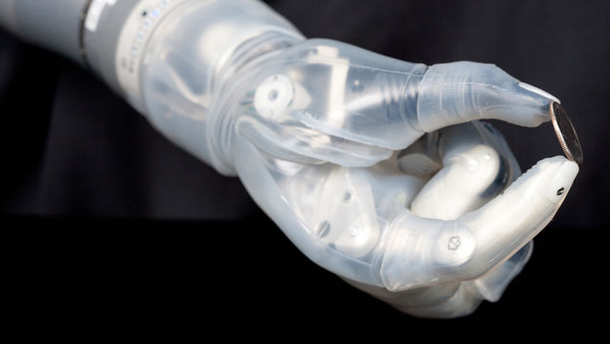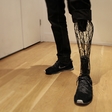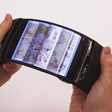
In the past, it may have appeared to be utterly impossible, but in the near future, people living with paralyzed or missing limbs will be able to do something that was once taken away from them. It's not only about manipulating objects by sending signals from their brain to robotic devices that will then shake hands, pick up glasses or hug loved ones – now it's also about sensing exactly what those devices are touching!
DARPA's Revolutionizing Prosthetics program, that focuses on restoring movement and sensation, gave the volunteer a sense of touch by running wires from the arrays on the motor cortex to a mechanical hand developed by the Applied Physics Laboratory (APL) at Johns Hopkins University. The APL hand contains sophisticated torque sensors are able to detect touching its fingers and physical "sensations" into electrical signals. During testing, the patient reported that he felt as if his own fingers were being touched, not the mechanical ones.
"We've completed the circuit," said DARPA program manager Justin Sanchez. "Prosthetic limbs that can be controlled by thoughts are showing great promise, but without feedback from signals traveling back to the brain it can be difficult to achieve the level of control needed to perform precise movements. By wiring a sense of touch from a mechanical hand directly into the brain, this work shows the potential for seamless bio-technological restoration of near-natural function."
DARPA's neurotechnology programs also include the Restoring Active Memory (RAM) and Systems-Based Neurotechnology for Emerging Therapies (SUBNETS) programs, seeking to aid people living with memory loss from traumatic brain injury or complex neuropsychiatric illness.



